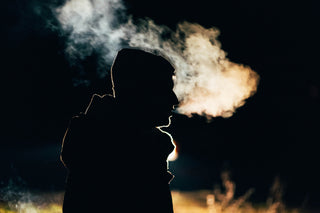Common triggers of psoriasis
Psoriasis is a condition that occurs when skin cells are reproduced too quickly, rapidly rising to the surface and forming patches of skin that may be thick, red, itchy and scaly. The condition can affect people of any age, but is most likely to develop in adults under 35 years old. Overall, around 2% of people in the UK are affected.
While we understand the mechanism in the body that causes the appearance of psoriasis (skin cells being made too quickly) the exact reason this happens is not fully understood. Research suggests it is caused by a problem with the immune system, and it is thought genetics also play a part.
One thing we do know is that psoriasis can be made worse by certain triggers, which can include environmental and hormonal factors.
What are the triggers?
The symptoms of psoriasis can come and go, but flare-ups may be set off or made worse by one of several triggers. These vary from person to person, but understanding what your triggers are and how to avoid or manage them can be hugely helpful in reducing the number or severity of flares. Here are some of the most common triggers and tips for dealing with them.
Stress
Stress can either trigger psoriasis for the first time or cause a flare-up in the condition. It can be a circle, with stress causing the psoriasis and then psoriasis contributing to ongoing stress, so it’s important to find ways to relax. Exercise, mindfulness, meditation and speaking to friends can all help lower your stress levels.
Alcohol

The weather
Dry skin can be made worse by weather conditions, whether it’s been affected by the cold, dry winds of winter or been exposed to too much summer sun. The best advice is to keep the skin as moist as possible and limit time spent out in the elements.
Infection
If you’ve had an infection, a psoriasis flare-up may follow within 2 to 6 weeks. As psoriasis is linked to the immune system, anything that weakens it can trigger or aggravate the condition. Treating the infection can reduce or clear the psoriasis symptoms.
Medications
Medicines for illnesses including high blood pressure, heart disease and arthritis have been associated with triggering psoriasis. Don’t stop taking medication, even if you think it is contributing to your psoriasis, without speaking to a doctor first.
Smoking
Research suggests that the more you smoke, or the more time you spend around people who do, the worse your psoriasis may be. Cutting down on the cigarettes or spending less time in smoky environments may help improve psoriasis.
Skin trauma
Suffering an injury to the skin such as a cut, scrape, insect bite or sunburn may make psoriasis worse by triggering something called the Koebner response, in which lesions may appear on the skin. Avoid injuring the skin where possible, for example by wearing gloves when doing gardening or housework.
Being more aware of what triggers your psoriasis may help you to reduce the number of flare-ups you have or make them less serious when they do happen. For more advice on the causes and treatment of scalp psoriasis, speak to a healthcare professional. If you are experiencing a flare up of scalp psoriasis, a therapeutic shampoo such as Polytar Scalp Shampoo with 4% Coal Tar may help to ease your symptoms.







